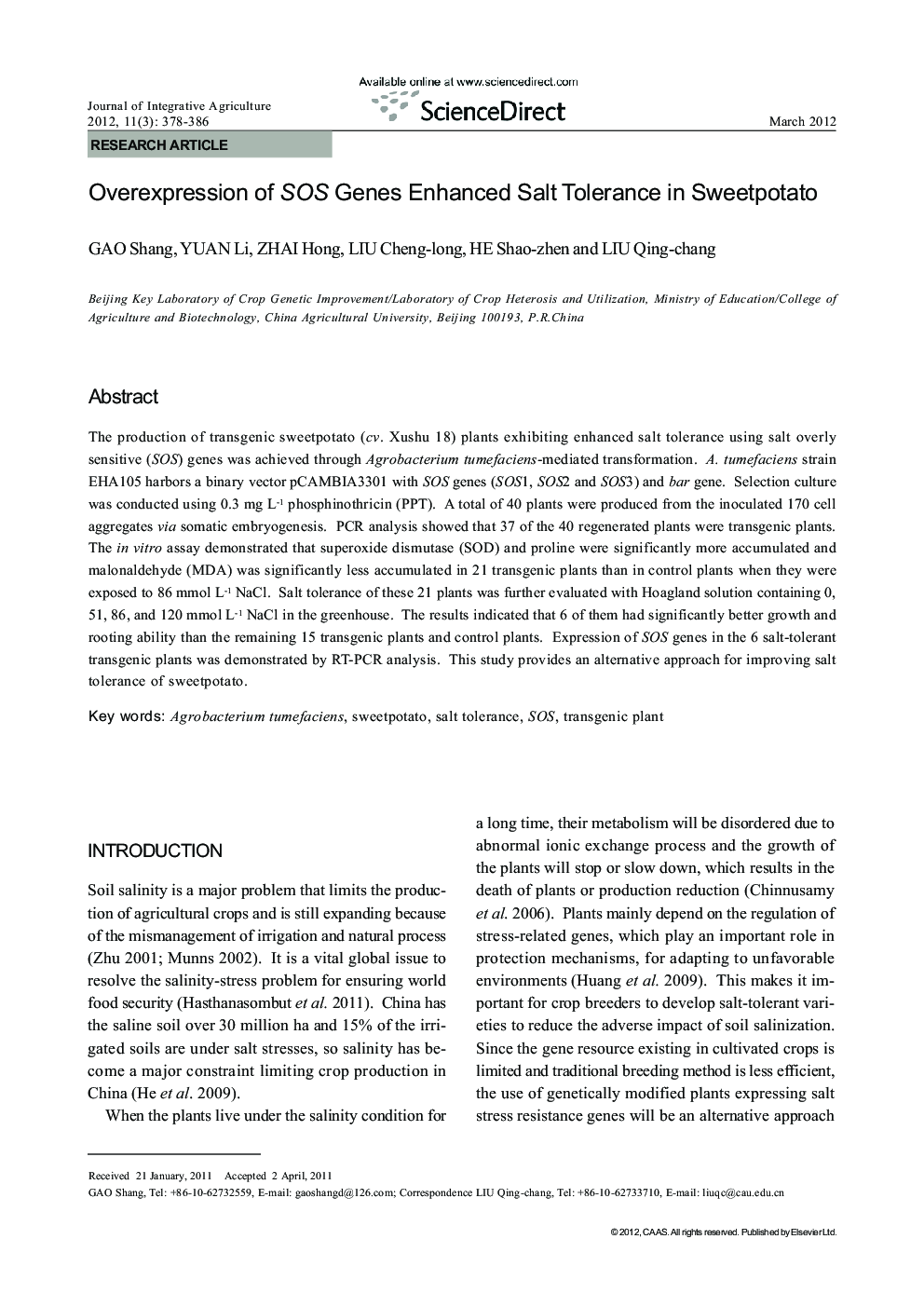| Article ID | Journal | Published Year | Pages | File Type |
|---|---|---|---|---|
| 4495254 | Journal of Integrative Agriculture | 2012 | 9 Pages |
The production of transgenic sweetpotato (cv. Xushu 18) plants exhibiting enhanced salt tolerance using salt overly sensitive (SOS) genes was achieved through Agrobacterium tumefaciens-mediated transformation. A. tumefaciens strain EHA105 harbors a binary vector pCAMBIA3301 with SOS genes (SOS1, SOS2 and SOS3) and bar gene. Selection culture was conducted using 0.3 mg L−1 phosphinothricin (PPT). A total of 40 plants were produced from the inoculated 170 cell aggregates via somatic embryogenesis. PCR analysis showed that 37 of the 40 regenerated plants were transgenic plants. The in vitro assay demonstrated that superoxide dismutase (SOD) and proline were significantly more accumulated and malonaldehyde (MDA) was significantly less accumulated in 21 transgenic plants than in control plants when they were exposed to 86 mmol L−1 NaCl. Salt tolerance of these 21 plants was further evaluated with Hoagland solution containing 0, 51, 86, and 120 mmol L−1 NaCl in the greenhouse. The results indicated that 6 of them had significantly better growth and rooting ability than the remaining 15 transgenic plants and control plants. Expression of SOS genes in the 6 salt-tolerant transgenic plants was demonstrated by RT-PCR analysis. This study provides an alternative approach for improving salt tolerance of sweetpotato.
